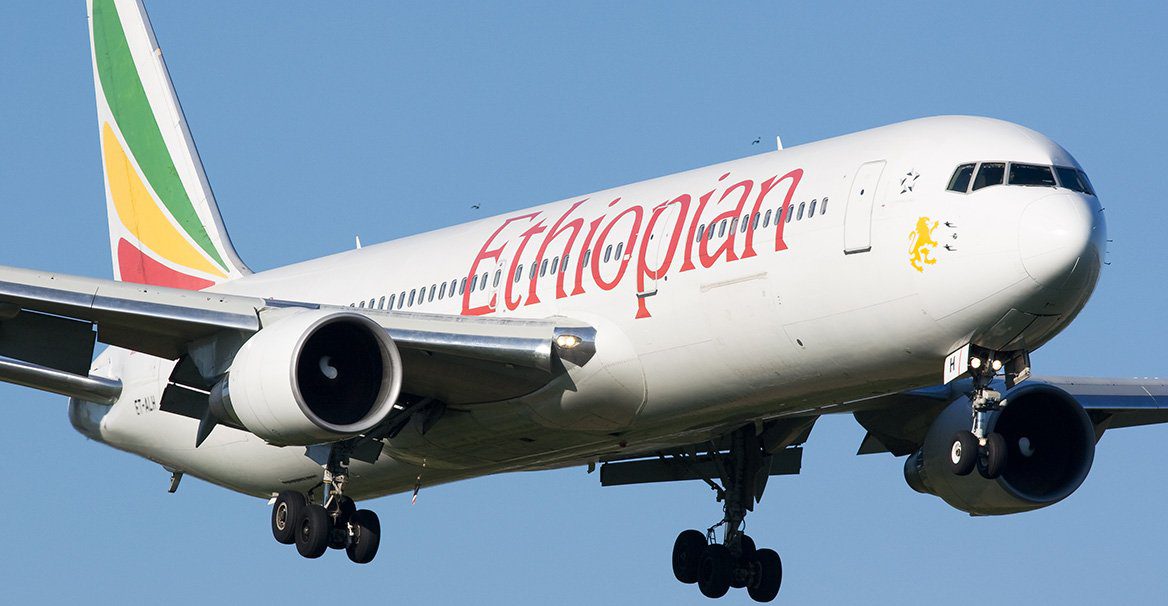It took several years of negotiations for fastjet, a low-cost private airline based in Tanzania, to get the traffic rights to fly between Harare and Bulawayo this July. The flying distance between these two major cities in Zimbabwe is only about 228 miles—a 45-minute trip. Worse still, it had originally taken three years for fastjet to even begin its operations in Zimbabwe, let alone dare to expand its domestic flights in the country.
This isn’t unique to Zimbabwe, either. Many African countries restrict their airspaces to prop up state-owned air carriers. That’s why it is notoriously difficult for private airlines to succeed in Africa. They are quite literally dewinged before they’ve even had a chance to explore the skies due to protectionism, high taxes, and restrictive regulations. New airlines are prevented from entering markets, existing companies are unable to offer flights of their choice, routes are predetermined, and prices are inflated. These restrictive policies originated in the early 1960s when many newly-independent African states created national airlines to assert their status as nations.
But these national airlines offer little to be proud of. The majority of state-owned airlines have failed, not being able to make enough revenue to cover their costs. Today, there are only three major sub-Saharan intercontinental airlines: Kenya Airways, Ethiopian Airlines, and South African Airways. The only profitable one is Ethiopian Airlines (it’s not managed by the government), but the others incur hundreds of millions in losses every year, and survive on government bailouts.
Besides the overwhelming evidence that state-owned airlines waste resources, costing the continent millions of jobs and billions in revenue, the dream just won’t die. There are initiatives to re-boost defunct carriers across the continent, including in Nigeria, Uganda and Zambia. The worst part of the disastrous state of African skies is that for the last fifty years, there have been multilateral agreements in place that could transform aviation on the continent. They only need implementation.
Fifty years ago, the newly-independent African nations founded the African Airlines Association (AFRAA). Created to facilitate the integration of African skies and make African airlines more globally competitive, AFRAA is no closer to that goal today than it was in 1968. African governments just can’t seem to be able to stop getting in their own way.
“How can we liberalize airlines when we are overtaxing them?” asked Elijah Chingosho, then-Secretary General of AFRAA, at the Aviation Africa summit in Kigali, Rwanda in 2017.
Indeed, African politicians are particularly skilled at attending summits on the urgent need for freedom in aviation, while having no will to implement them.
In 1988, twenty years after the creation of AAFRA, African states signed the Yamoussoukro Decision, a multilateral agreement with 44 signatories, to liberate African skies. In 2018, this agreement has not yet been implemented. In fact, earlier this year, the Yamoussoukro Decision was replaced by yet another agreement that will likely not be implemented, the so-called Single African Air Transport Market (SAATM). Launched in January 2018, SAATM has the same noble goals of opening up Africa’s skies. Except this time, instead of the 44 signatories from 30 years ago, only 23 states bothered to make the commitment.
While generations upon generations of African leaders continue to shake hands, sign agreements and smile for the cameras, the continent pays dearly for it.
Air transport plays a critical role in facilitating business, international trade and tourism. When governments regulate airline industries to buttress national carriers, private sector innovation is hampered. In African skies, safety is subpar, sometimes deadly, routes are circuitous—one often has to fly through Europe or the Middle East just to get from one African city to the next, fares are expensive, and airport landing costs are incredibly high. Africa as a whole only has about two percent of global passenger traffic. Regulations might prop up national carriers and buttress some misguided sense of national pride, but they tear down African economies.
The lack of freedom in African aviation costs the continent millions of jobs and billions of dollars are lost in investment every year. With deregulation, there would be increased competition and improved connectivity leading to lower transport costs and encouraging smoother trade flows. According to the International Air Transport Association (IATA), air cargo represents more than 35 percent of global trade by value. Africa only captures 1.9 percent of air freight market.
It doesn’t have to be this way.
Africa already has the policies written out. If nations would only implement them, it would be a transformative experience for passengers and businesses, as it was for Europe and the USA.
In 1978, President Jimmy Carter signed the Airline Deregulation Act, which somewhat freed the American airline industry, hitherto regulated like a public utility. Through deregulation, Southwest, which had been forbidden from flying outside Texas, was free to offer its then-unique shorthaul, low-priced service on an interstate basis, paving the way for the development of low cost carriers. In Europe, Ryanair was only able to compete freely and inspire new carriers to enter the market, because the EU completed the “open skies” deregulation in 1997.
Today, a typical European or American traveler, has a range of options for air travel. They could choose the low-cost, no-frills service of carriers like Southwest, JetBlue or Ryanair, or the more luxurious services of a Virgin Atlantic or Delta Airline. Air travel is no longer confined to the wealthy because deregulation helped create affordable and efficient options for everyone.
If African states want to be competitive in a modern economy, they’d do well to let go of such vanity projects as national airlines, and implement fifty years worth of liberalization accords.
After that, they’d have nothing to do besides step back and let entrepreneurs finally do the work that states have been blocking.
- Stacy Ndlovu is a senior fellow at AfricanLiberty.org, a platform for advancing individual freedom, peace, and prosperity in Africa. Tweet at her: @snootyafrican

